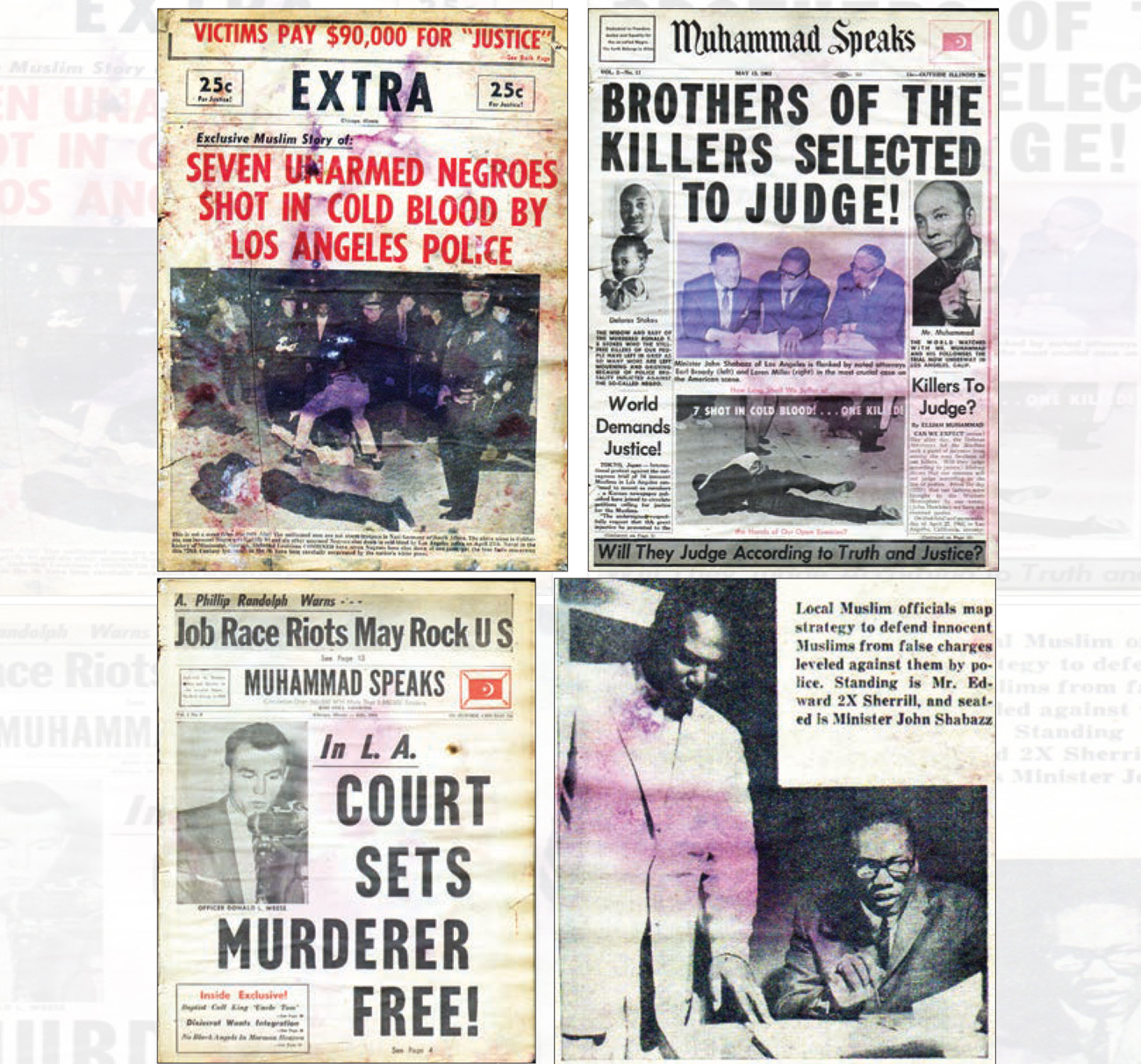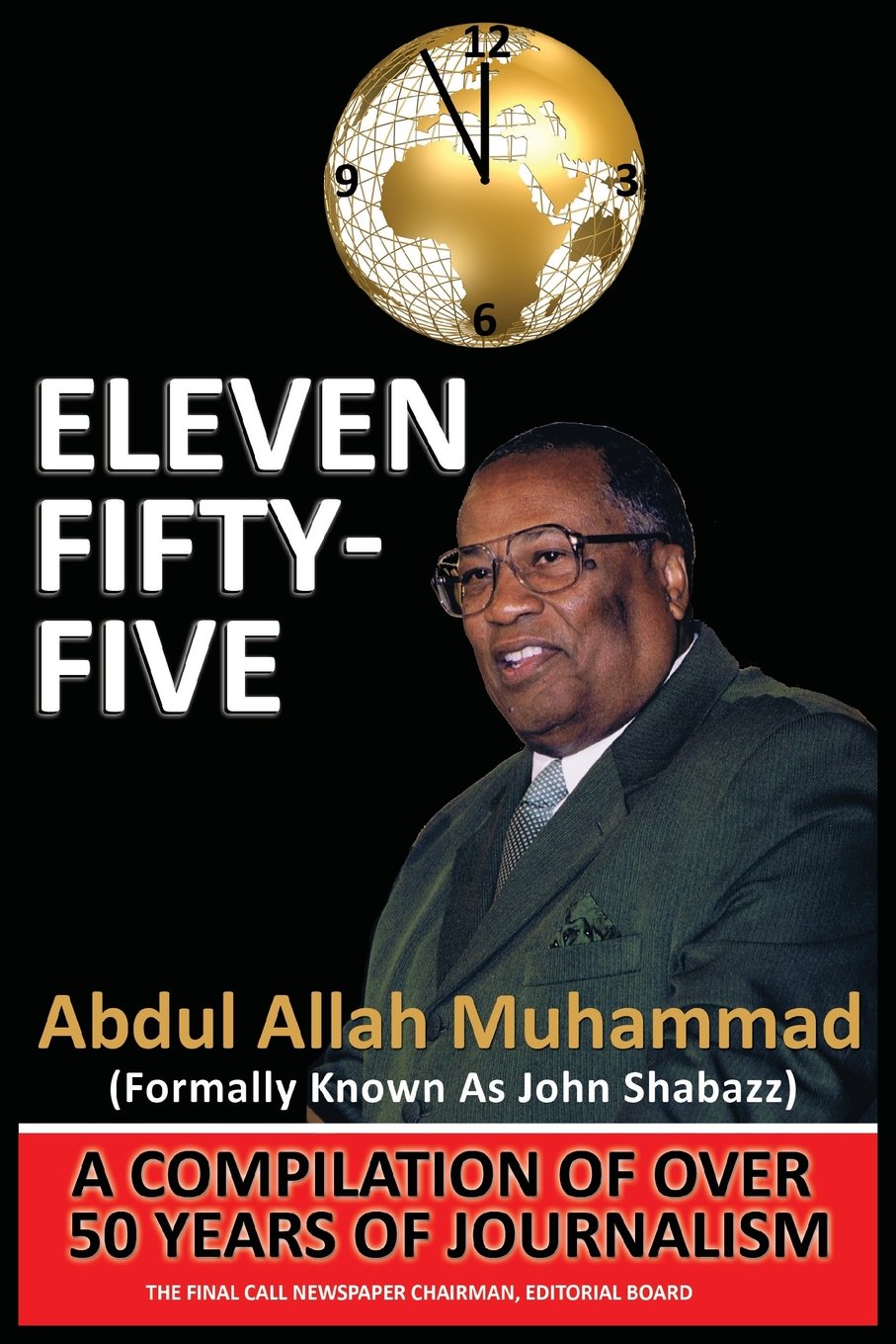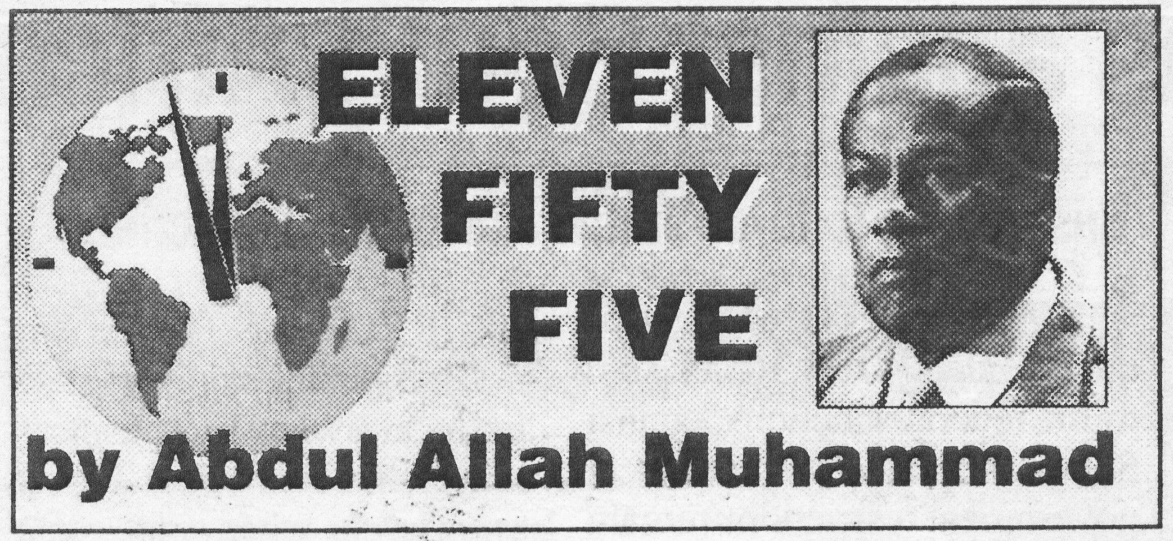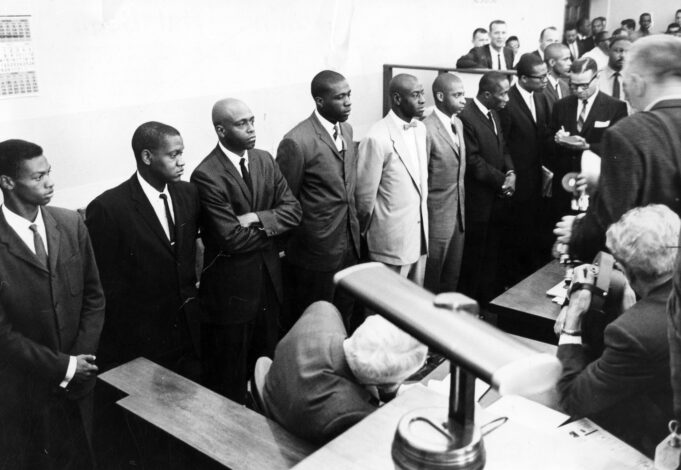April 27, 1962 was a Friday night. As usual the Fruit of Islam, men in the Nation of Islam, were at Temple No. 27 in Los Angeles for the Friday night meeting. One of the Muslim brothers had a dry cleaning business and many of the men brought their suits and wives’ garments to him each week to have them cleaned.
What wasn’t usual that night was when Los Angeles patrolmen Frank Tomlinson and Stanley Kensic pulled up behind Monroe X Jones and Fred X Jingles as they unloaded suits from the car.
“The police must have thought we were stealing clothes,” Nuri Muhammad, then known as Roosevelt X Walker, told The Final Call. “They started beating one of the brothers as I walked out of the mosque. It was on after that. We defended ourselves and the police radioed for help.”
“We were trying to save ourselves and more police came. Our regional secretary Ronald X Stokes was shot and killed right in front of me. His hands were raised and the police still shot him.”
Court records show that LAPD officer Donald Weese testified before an all-White coroner’s jury that Mr. Stokes “came towards me, chanting. He put his hands out … . I thought he was going to choke me.”
The local newspapers called it a “Gun Battle between the Black Muslims and the Police.” The police, however, were the only ones with guns.

“They attacked us and we had to fight back. The police swarmed into the mosque where the fight continued. It would have kept going but an officer told us to stop and he had a gun pointed at our minister’s head, John Shabazz. When our minister then said to stop, we stopped,” Kareem Muhammad, then Troy X Augustine, told The Final Call.
“We went outside. They had subdued us. They tore our clothes off and said n—-r shouldn’t be wearing suits.’ They put us in the paddy wagon and took us to jail. The Honorable Elijah Muhammad sent Raymond Sharrieff, the Supreme Captain, with the money to bail us out. That was $10,000 each. It was a miracle. He stuck with us every step of the way. He sent Malcolm to L.A. to mediate as well.”
Seven of the 14 Muslims involved were shot in addition to Mr. Stokes who died. William X Rogers was left paralyzed from a shot to his spine. The remaining 13 were charged with 12 counts for various offenses from resisting arrest to assault with force against each police officer. The only charge of intent to commit murder was placed against John Shabazz, the minister of the mosque.

“The Honorable Elijah Muhammad hired Donald Warden (Khalid Al Mansour), a top Black attorney, to represent him. They were trying to give my husband a life sentence,” said his wife Aishah.
John Shabazz was eventually found innocent along with Troy X Augustine and Raymond 6X Willey.
“Many had previous arrest records that was a factor to the courts even though they didn’t do anything,” Kareem Muhammad said. “It was a trying time in Los Angeles after that attack. The police continued to harass us. Minister John was very effective. He was influential with clergy, politicians and the community.”
John Shabazz who is known today as Abdul Allah Muhammad departed this life Dec. 15 in Atlanta, Ga. His janazah, or funeral, was held Dec. 21. He had many titles during his 89 years of life from minister to journalist to photographer to community organizer to force behind the success of Muhammad Speaks, the legendary Nation of Islam newspaper during the 1960s and 1970s.
He graduated high school at 15 with a full scholarship to Howard University where he eventually studied political science. He couldn’t attend until he was 16.
“He left Howard for the Navy,” said Aishah Muhammad, his wife of 47 years.
In addition to Howard University, Abdul Allah Muhammad attended the University of Missouri, the University of California Los Angeles where he studied journalism, Emory University where he went to graduate school for business administration and the University of Georgia where he received a certificate in public housing management.
But, in 1957 he met Malcolm X and his life was never the same.
“Malcolm came to speak at his university and after the lecture he listened to more of Malcolm with a group of students in his hotel room. Malcolm noticed that he was asking a lot of questions,” said Aishah Muhammad. “After talking to Malcolm, he went straight to the mosque.”
His talent and education quickly propelled him to be appointed minister of Los Angeles’ Temple No. 27 by the Honorable Elijah Muhammad in 1959.
“When the Honorable Elijah Muhammad returned from Mecca, he stopped in Los Angeles to give a press conference about his trip. During the press conference a reporter asked him why he had the name Muhammad and the men behind him, John, Malcolm, and John, all had X. The Honorable Elijah Muhammad answered that their names were John Ali, Malcolm Shabazz, John Shabazz and Raymond Sharieff. They were given holy names on the spot,” said Stephen Muhammad, who served as mosque secretary to Min. Abdul Allah Muhammad when he was minister in New York at Mosque No. 7
“Abdul Allah told me the Honorable Elijah Muhammad explained that he wasn’t going to let the White reporter embarrass ‘big men’ like them,” he added.
The next year he was appointed Regional Minister and his relationship with Brother Malcolm grew close. They were the ranking ministers in the Nation of Islam at the time.
Askia Muhammad, Final Call senior editor, WPFW-AM news director and former editor of Muhammad Speaks, remembers hearing him speak on the campus of California State University-Los Angeles.
“Everyone was paying attention to the Nation of Islam. I was a journalism student at the time but I was reluctant to identify with Muhammad Speaks and the Nation,” he told The Final Call.
“I was brainwashed but people everywhere were talking about the Nation. I never affiliated with the Nation while I was in Los Angeles even though the mosque was three blocks from my house. John Shabazz (Abdul Allah Muhammad) had an impressive look. He was clean cut and wore a bow tie.”
After the police attacked the mosque, Brother Malcolm came several times to support the Believers and speak on police brutality.
Garret Felber writes in “Those Who Know Don’t Say” that “Malcolm X worked feverishly in Los Angeles to produce a Black united front against police brutality that transcended divisions of class, religion, and politics and coalesced around the shared experience of policing and surveillance in communities of color.”

That work did little to stop the police brutality and harassment of the Muslims. Things remained so volatile that in 1965 the Honorable Elijah Muhammad appointed his Los Angeles minister as a regional minister based in Atlanta.
“He left L.A. but his impact was huge on people like Maulana Karenga (founder of Kwanza) and Khalid al-Mansour (Donald Warden). John Shabazz went to Atlanta and became a community organizer,” Askia Muhammad said.
Abdul Allah Muhammad will be remembered by many as a rights advocate, manager and author.
After the departure of the Honorable Elijah Muhammad in 1975, he joined the work of rebuilding the Nation of Islam led by the Honorable Minister Louis Farrakhan who renamed him Abdul Allah Muhammad.
He moved to New York where he was the East Coast Regional Minister in 1984.
From there he was brought to Chicago where he was appointed by Minister Farrakhan to be minister of Mosque No. 2 in 1987. He served on the Nation’s National Board of Laborers and was chairman of the editorial board for The Final Call Newspaper and wrote a very popular column, “11:55,” which was tied the world doomsday clock. He lectured at Muhammad University of Islam in Chicago, the Nation’s school, and had a great love of children.
“During my time working for the Supreme Captain in Chicago, I recall so many fond memories of Minister Abdul Allah! I used to see him often at Muhammad University of Islam where he taught Islamic Studies or at The Final Call Administration Building on ‘paper night’ (when The Final Call goes to print),” Ernest Muhammad told The Final Call.
“We used to have the greatest conversations regarding music. He told me that when he first got married, Dinah Washington and Billy Eckstine sang at his wedding! He was like a walking encyclopedia regarding the early days of the Nation of Islam under the Honorable Elijah Muhammad. I truly miss those conversations.”













